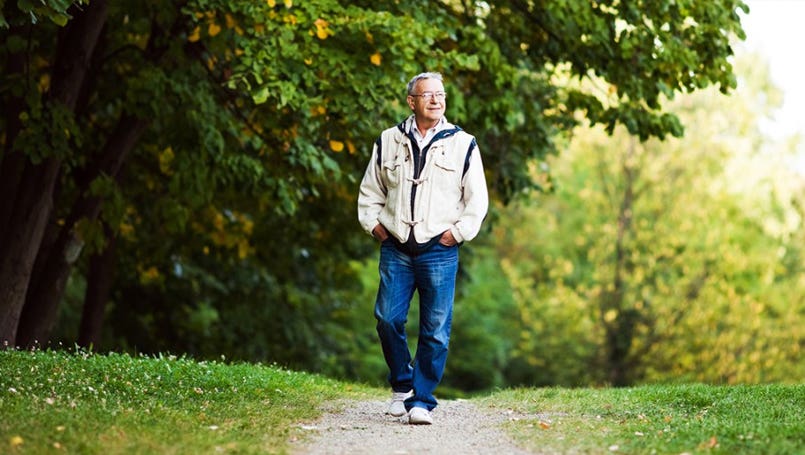Walking will help you sleep better, study finds
New research shows that middle-aged adults who took more steps over four weeks reported better sleep than less-active people.

[Apr 23, 2022: Lawrence Goodman, Brandeis University]
Middle-aged adults who took more steps over four weeks reported better sleep than less-active people. (CREDIT: Creative Commons)
If you’re one of the millions of adults who suffer from poor sleep, consider walking it off.
New Brandeis research shows that middle-aged adults who took more steps over four weeks reported better sleep than less-active people.
Although the role of high-impact exercise on sleep has been researched, this study is one of the first to look at how daily walking affects sleep in adults 30 to 60 years old.
It’s good news for the 50 to 70 million adults who suffer from a sleep disorder and the more than 9 million adults over 30 who rely on drugs to fall asleep (especially since some sleep medications have been linked to addiction, cancer and other negative health effects).
“Middle-aged or older adults are not always able to engage in high-impact exercise, and these age groups are more likely to have poor sleep,” says Alycia Sullivan Bisson, MA’17, a doctoral candidate in psychology, who co-authored the study with Margie Lachman, the Minnie and Harold Fierman Professor of Psychology. “We wanted to see if something more feasible, like walking, could make a difference.”
Related Stories
The researchers enrolled 59 people and asked half of them to walk an additional 2,000 steps per day — the equivalent of about a mile — over four consecutive weeks. Participants wore Fitbits to track their activity.
Study participants said they slept longer and better on the days they walked more, compared to the days they were less active. Women reported bigger gains in sleep quality than men, a finding that needs more research.
“Recommendations for increasing daily steps could be a feasible way to improve sleep [...] as most Americans have a fitness tracker or smartphone with the capability of measuring steps,” the authors wrote in the journal Sleep Health.
Note: Materials provided above by Brandeis University. Content may be edited for style and length.
Like these kind of feel good stories? Get the Brighter Side of News' newsletter.
Tags: #New_Discoveries, #Research, #Sleep, #Walking, #Science, #Exercise, #Health_News, #The_Brighter_Side_of_News



